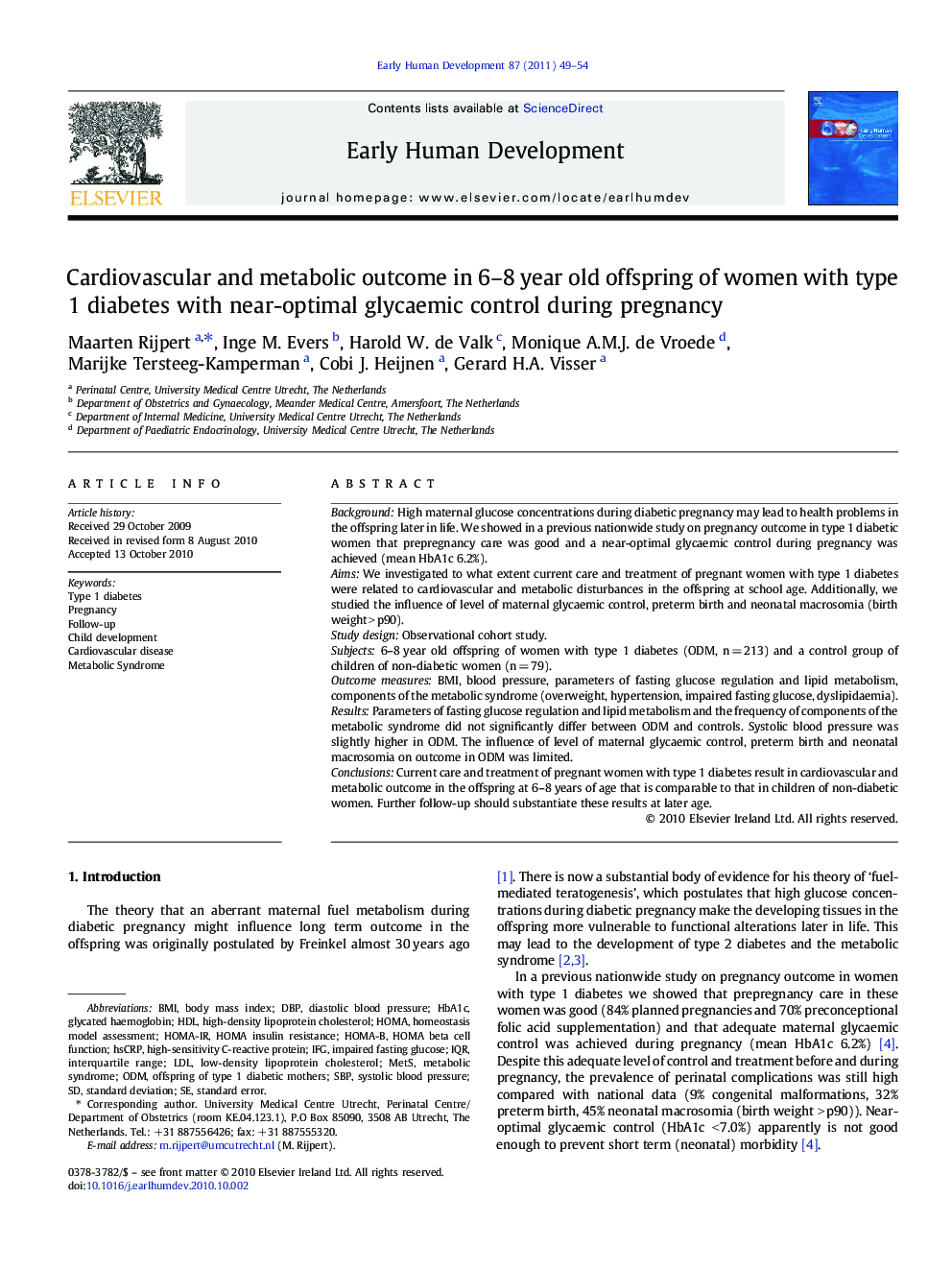| Article ID | Journal | Published Year | Pages | File Type |
|---|---|---|---|---|
| 3917370 | Early Human Development | 2011 | 6 Pages |
BackgroundHigh maternal glucose concentrations during diabetic pregnancy may lead to health problems in the offspring later in life. We showed in a previous nationwide study on pregnancy outcome in type 1 diabetic women that prepregnancy care was good and a near-optimal glycaemic control during pregnancy was achieved (mean HbA1c 6.2%).AimsWe investigated to what extent current care and treatment of pregnant women with type 1 diabetes were related to cardiovascular and metabolic disturbances in the offspring at school age. Additionally, we studied the influence of level of maternal glycaemic control, preterm birth and neonatal macrosomia (birth weight > p90).Study designObservational cohort study.Subjects6–8 year old offspring of women with type 1 diabetes (ODM, n = 213) and a control group of children of non-diabetic women (n = 79).Outcome measuresBMI, blood pressure, parameters of fasting glucose regulation and lipid metabolism, components of the metabolic syndrome (overweight, hypertension, impaired fasting glucose, dyslipidaemia).ResultsParameters of fasting glucose regulation and lipid metabolism and the frequency of components of the metabolic syndrome did not significantly differ between ODM and controls. Systolic blood pressure was slightly higher in ODM. The influence of level of maternal glycaemic control, preterm birth and neonatal macrosomia on outcome in ODM was limited.ConclusionsCurrent care and treatment of pregnant women with type 1 diabetes result in cardiovascular and metabolic outcome in the offspring at 6–8 years of age that is comparable to that in children of non-diabetic women. Further follow-up should substantiate these results at later age.
